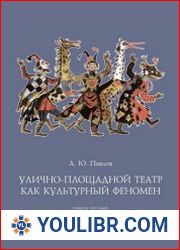
BOOKS - CULTURE AND ARTS - Евреи, конфуцианцы и протестанты культурный капитал и коне...


US $9.78

264522

264522
Евреи, конфуцианцы и протестанты культурный капитал и конец мультикультурализма
Author: РусскийВ книге исследуется влияние культуры на экономическое развитие. Изложение строится на основе введенного автором понятия «культурного капитала» и предложенной им и его коллегами типологии культур, позволяющей на основе 25 факторов определить, насколько высок уровень культурного капитала в той или иной культуре. Наличие или отсутствие культурного капитала определяет, создает та или иная культура благоприятные условия для экономического развития и социального прогресса или, наоборот, препятствует им. подробно анализирует три крупные культуры с наибольшим уровнем культурного капитала — еврейскую, конфуцианскую и протестантскую, а также ряд сравнительно менее крупных и влиятельных этнорелигиозных групп, которые тем не менее вносят существенный вклад в человеческий прогресс. В то же время значительное внимание в книге уделяется анализу социальных и экономических проблем стран, принадлежащих другим культурным ареалам, таким как католические страны (особенно Латинская Америка) и исламский мир.показывает, что и успех, и неудачи разных стран во многом определяются ценностями, верованиями и установками, обусловленными особенностями культуры страны и религии, исторически определившей фундамент этой культуры.td>tr>
Year: 2020
Number of pages: 288
Format: PDF
File size: 10 MB
Language: RU

Year: 2020
Number of pages: 288
Format: PDF
File size: 10 MB
Language: RU
The book explores the influence of culture on economic development. The presentation is based on the concept of "cultural capital" introduced by the author and the typology of cultures proposed by him and his colleagues, which makes it possible to determine on the basis of 25 factors how high the level of cultural capital is in a particular culture. The presence or absence of cultural capital determines whether a particular culture creates favorable conditions for economic development and social progress or, conversely, impedes them. The author analyzes in detail the three major cultures with the highest level of cultural capital - Jewish, Confucian and Protestant, as well as a number of relatively smaller and influential ethno-religious groups, which nevertheless make a significant contribution to human progress. At the same time, significant attention in the book is paid to the analysis of social and economic problems of countries belonging to other cultural areas, such as Catholic countries (especially Latin America) and the Islamic world. The author shows that both the success and failures of different countries are largely determined by values, beliefs and attitudes due to the peculiarities of the culture of the country and religion, which historically determined the foundation of this culture.













































